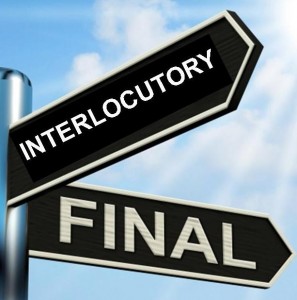Interlocutory orders “‘are those that are provisional or temporary, or that decide some immediate point or matter but are not a final decision on the whole matter.’” Coit v. Tillinghast, No. 2013-197-Appeal at 9 (quoting Simpson v. Vose, 702 A.2d 1176, 1177 (R.I. 1997)).
It is well settled that interlocutory orders, generally are not subject to immediate appellate review unless the order or decree falls within one of the statutory exceptions to the final judgment rule. Id. (citing R.I. Gen. Laws § 9-24-7)). This principle has been addressed at length in prior Court decisions. Past editions of the Fast Five on Appellate Procedure have addressed such decisions.
In Coit, the Rhode Island Supreme Court addressed a second, long established judicial exception to the general rule that interlocutory orders are not subject to appellate review. First recognized by the Supreme Court in McAuslan v. McAuslan, 83 A. 837, 841 (R.I. 1912), the McAuslan Doctrine provides that an interlocutory order may be reviewed before a case has concluded when the order “‘has such an element of finality as to require immediate review by [the Supreme] Court to avoid possible injurious consequences.’” Id. (quoting Chiaradio v. Falck, 794 A.2d 494, 496 (R.I. 2002)). The judicially crafted exception is designed to prevent clearly imminent and irreparable harm that would otherwise result if judicial review was not available. Id. (citing Town of Lincoln v. Cournoyer, 375 A.2d 410, 412-13 (R.I. 1977)).

